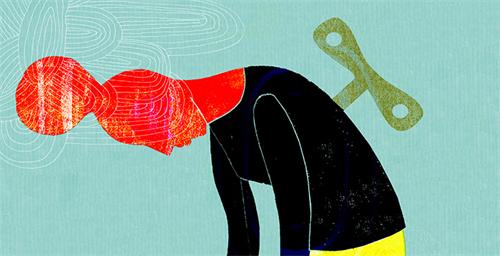Why Nordic Countries Lead in Child Happiness (And What We Can Learn)

In recent years, research on child well-being has received increasing attention. According to the latest UNICEF report evaluating 43 OECD and EU countries, child well-being is assessed across three dimensions: physical health, mental well-being, and skills development. Unsurprisingly, European countries—particularly the Nordic ones—consistently top the list. This isn’t the first time the Nordic nations have ranked so highly; they have long been stable leaders in global child happiness rankings.
So, why do Nordic countries maintain such a strong lead in child well-being? What lessons can we learn from their approach?
1. A Philosophy of Education: Not “Learn Early” but “Live Well”
In the Nordic countries, education is more than just acquiring knowledge. It’s about nurturing independent thinking, problem-solving abilities, and social adaptability. From preschool onwards, Nordic education emphasizes learning through play.
These countries resist early academic instruction and instead encourage children to play freely. Through play, children develop physical coordination, communication skills, and independence.
In Nordic kindergartens, the curriculum is extremely relaxed. Children spend most of their time playing—building with blocks, collecting leaves, drawing, observing insects... Outdoor activities are especially emphasized. Regardless of the weather—rain, snow, or shine—children are encouraged to run, climb, and explore in nature. Getting muddy, tired, or even slightly injured is seen as a valuable part of the learning process. Contact with nature is viewed as a vital way to cultivate resilience, curiosity, and observation skills.
In Finland, children don’t start school until age 7. Even in third grade, if a child can’t yet tell time, no one panics—because they believe “every child grows at their own pace. Childhood is not a race.”
2. Family Support: A Real Parenting Community
Happy children need parents who aren’t overwhelmed. Nordic countries understand this well, offering world-leading support for families.
The Nordic Four—Sweden, Norway, Finland, and Denmark—are known for their generous welfare systems. For example:
- Sweden offers 480 days of paid parental leave, with 90 days reserved for fathers;
- Norway provides 42 weeks of full-pay or 52 weeks at 80% pay;
- After birth, families receive monthly child allowances until the child becomes an adult;
- Education is entirely free, including tuition, materials, and even daily school lunches;
- Public childcare is well-developed, with 0–3-year-old coverage reaching 90% in Sweden, and fees capped at 3% of family income.
These policies reduce financial strain and narrow socioeconomic gaps. Children aren’t made to feel inferior because of their background—every child has access to equal resources and opportunities.
3. A Way of Life: Living With Nature and Building Resilience
The Nordic landscape is uniquely rich—forests, lakes, seas, and coastlines dominate the region, from Arctic tundras in the north to temperate zones in the south. This deep connection with nature shapes the way families raise children.
From an early age, children grow up “learning through nature.” They run through forests, climb trees, splash in puddles, watch ants, and even nap outdoors in winter. These outdoor experiences not only build physical strength but also develop emotional resilience. Nature becomes a classroom where no textbooks are needed—every step is a lesson.
Nordic families also embrace minimalist, eco-conscious living. From home design to food choices, children are immersed in a lifestyle that respects sustainability.
4. What Can We Learn?
While we may not be able to replicate Nordic systems entirely—such as 480 days of parental leave or universal childcare—we can still draw valuable insights from their parenting mindset and lifestyle:
1. Let Them Play—It’s a Good Thing
If your child gets dirty on the weekend, just wash them up. If they get wet, change their clothes. Take them to the park, riverbank, or woods. Playing in nature can be more meaningful than signing up for another extracurricular class. Sunshine and fresh air are often better than vitamin supplements.
2. Parenting is a Team Effort
Even without long leave, fathers who spend 30 minutes playing with their kids each day can make a huge difference. Children need to feel cared for—not just financially supported.
3. Respect Their Pace—No Rush to the “Starting Line”
Don’t worry if your child can’t read a clock in third grade. Stop comparing them to “other people’s kids.” Childhood shouldn’t be a race. What really matters is happiness and a sense of security. Support and patience are far more powerful than cramming.
4. Connection Over Consumption
Instead of scrolling on your phone, spend the weekend cooking together or playing a board game. These shared moments create deeper memories than any new toy ever could. A warm home is built with time and love, not money.
5. Mistakes Are Opportunities
When your child messes up, don’t shout. Listen. Ask, “Are you upset? Want to figure it out together?” That works better than “One more tantrum and you’re getting punished.”
6. Share the Load—Parenting Isn’t a Solo Game
Even without a perfect welfare system, we can build support networks: school counselors, neighborly help, or “mom groups” who take turns watching the kids.
7. Let Kids Be Themselves
In Nordic countries, a child can say “I want to be a carpenter” without being told it’s a waste. We can also let children explore and experiment. If your kid loves picking up rocks or watching ants, maybe they’re a future geologist.
The Nordic edge in child well-being isn’t due to more gifted children—it’s because their societies, policies, families, and schools are all genuinely focused on supporting children’s growth. They believe that giving children a joyful childhood is the foundation of a better society.
We don’t need to copy the Nordic model exactly. But we can learn from their values—and find ways that work for us. Giving kids the space to breathe freely, laugh more, and feel less pressure might just be the simplest—and most effective—recipe for happiness.
Recommended for you:







